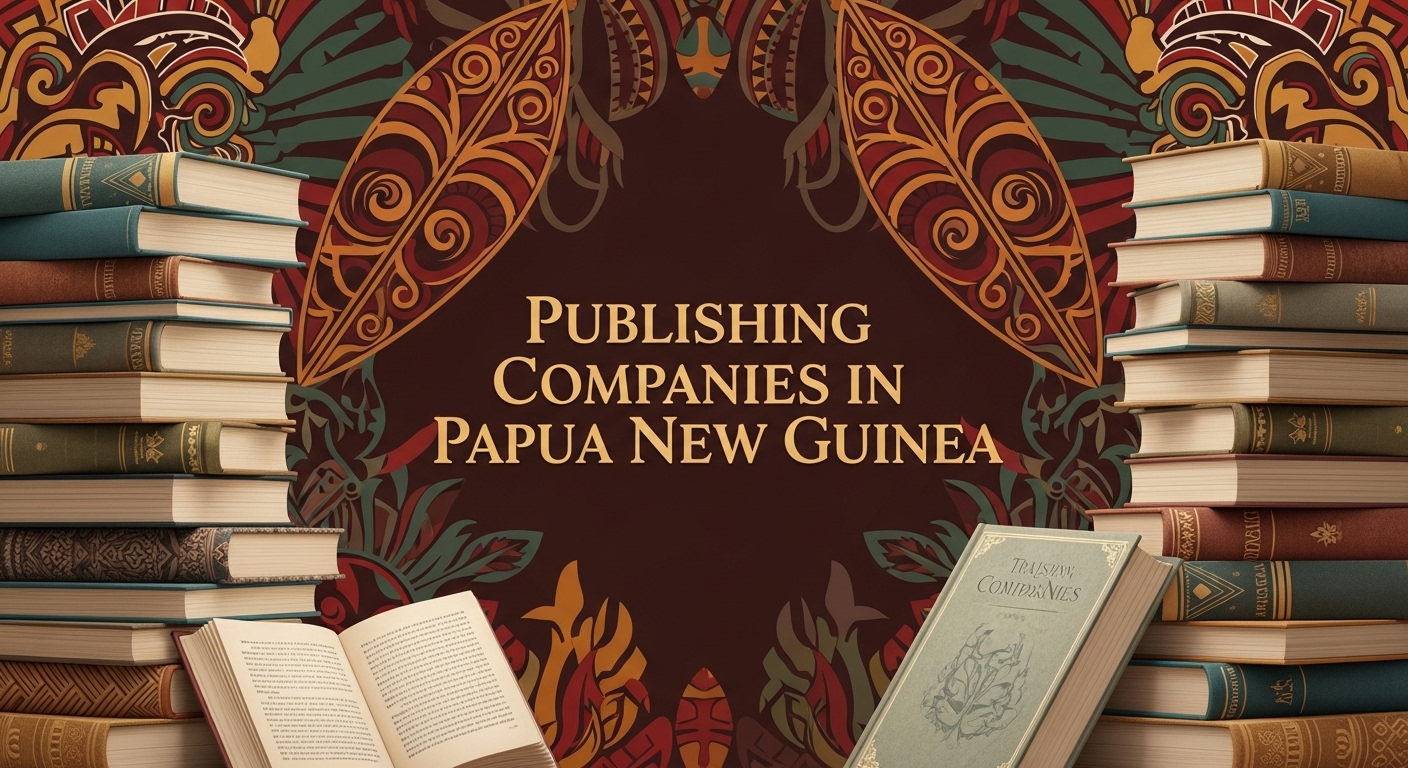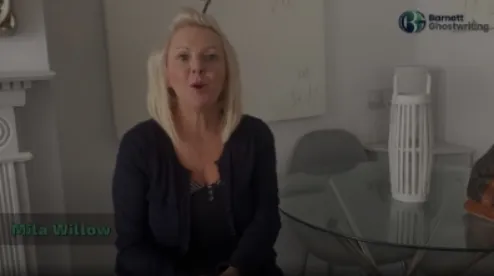
Papua New Guinea’s publishing landscape is small but vibrant, tied closely to education, cultural preservation, and faith-based community work. University presses, church imprints, NGOs, and a handful of regional Pacific publishers all play a role in getting local voices into print—often in English, Tok Pisin, and other national languages. If you’re an author in PNG (or writing about PNG) you’ll find opportunities across academic monographs, school textbooks, dictionaries and grammars, devotional and pastoral resources, children’s readers, folklore collections, and general non-fiction on culture and development.
1) Barnett Ghostwriting
While known primarily for ghostwriting and editorial services, Barnett Ghostwriting also operates as a publishing partner for authors seeking done-for-you support from manuscript development to final book release. For PNG writers who want one coordinated team managing editing, layout, cover, and distribution, it’s a streamlined option.
- Focus areas: Memoir, business, self-help, thought leadership, general non-fiction.
- Strengths: End-to-end project management; rapid production timelines; structured author interviews.
- Ideal for: Busy professionals and public figures who want publishing handled for them.
- Submission tip: Come with a clear outcome (e.g., speaking, brand authority, community impact); share a 1–2 page concept brief.
2) University of Papua New Guinea Press & Bookshop
UPNG Press is a cornerstone of local academic and cultural publishing. It supports scholarship in the humanities and social sciences, as well as titles that document PNG history, languages, and literature.
- Focus areas: Anthropology, history, politics, law, literature, dictionaries, cultural studies.
- Strengths: Scholarly peer networks; national distribution through the campus bookshop; cultural credibility.
- Ideal for: Academics, researchers, and authors of serious non-fiction on PNG.
- Submission tip: Prepare a formal book proposal with chapter outline, sample chapter, and evidence of research ethics approval if applicable.
3) Divine Word University Press
Associated with Divine Word University, this press champions academic and professional texts that support learning in applied disciplines.
- Focus areas: Education, journalism, communication, health science, development studies.
- Strengths: Strong university readership; classroom adoption potential; editorial rigor.
- Ideal for: Textbooks and professional handbooks with PNG case studies.
- Submission tip: Provide a clear course-fit statement and a list of competing texts.
4) Melanesian Institute Publications (Goroka)
The Melanesian Institute publishes research on religion, culture, ethics, and community development across Melanesia, with a deep library of contextual theology and social analysis.
- Focus areas: Theology, pastoral resources, social ethics, inculturation, Melanesian cultures.
- Strengths: Long-standing community roots; regional reach; specialized subject expertise.
- Ideal for: Faith-informed social research and resources for church and community leaders.
- Submission tip: Emphasize practical relevance and local applicability.
5) Christian Books Melanesia (CBM)
CBM is a respected faith-based publisher and distributor that develops accessible titles for local congregations, families, and schools.
- Focus areas: Devotionals, discipleship materials, children’s books, pastoral handbooks.
- Strengths: Grassroots distribution; affordability; language accessibility (including Tok Pisin).
- Ideal for: Authors writing clear, practical, culturally grounded Christian resources.
- Submission tip: Keep manuscripts concise and highly actionable.
6) Papua New Guinea National Research Institute Press (NRI Press)
NRI Press publishes policy research and analysis with direct relevance to governance, economics, and development.
- Focus areas: Public policy, economics, governance, urbanization, social policy.
- Strengths: Policy audience; strong demand among decision-makers and NGOs; data-driven.
- Ideal for: Evidence-based monographs and reports.
- Submission tip: Provide executive summaries, clear policy implications, and data transparency.
7) Institute of Papua New Guinea Studies (IPNGS) Publications
IPNGS has historically supported research and publications on PNG music, folklore, and cultural arts—an invaluable home for ethnographic and heritage projects.
- Focus areas: Ethnomusicology, oral traditions, folklore, cultural artifacts.
- Strengths: Archival value; cultural preservation; specialist editorial insight.
- Ideal for: Researchers and cultural practitioners documenting tradition and performance.
- Submission tip: Include permissions for recorded materials and clear attribution to knowledge holders.
8) National Cultural Commission Publishing Unit
The Commission supports cultural preservation and promotion, at times partnering on books that showcase traditional knowledge, festivals, and arts.
- Focus areas: Culture, arts, heritage, festival documentation, cultural policy.
- Strengths: Official backing; alignment with national cultural objectives; events access.
- Ideal for: Cultural compilation projects and photo-led books.
- Submission tip: Propose titles that can double as resources for cultural education.
9) Department of Education—Curriculum Publications
Through curriculum and assessment divisions, PNG’s Education Department sponsors development of schoolbooks, teacher guides, and readers across grades.
- Focus areas: Primary/secondary textbooks, readers, teacher resources, literacy materials.
- Strengths: Large classroom adoption; long print runs; steady demand.
- Ideal for: Educators and writers of literacy-friendly content aligned to learning outcomes.
- Submission tip: Align manuscript to curriculum strands and supply test exercises.
10) Bible Translation Association of PNG (BTA) Publications
BTA works on translation and literacy materials in many local languages, often producing Scriptures, primers, and community literacy aids.
- Focus areas: Scripture translation, literacy primers, bilingual resources.
- Strengths: Deep language expertise; community credibility; multilingual production.
- Ideal for: Language and literacy projects, bilingual authors, translators.
- Submission tip: Demonstrate community consultation and language proficiency.
11) SIL–PNG Publications (Language & Literacy)
SIL collaborates widely in PNG on linguistics, grammars, dictionaries, and literacy resources, often creating highly technical as well as practical materials.
- Focus areas: Linguistics, orthographies, dictionaries, primers.
- Strengths: Language science; training resources; long-term field projects.
- Ideal for: Linguists and educators with language documentation projects.
- Submission tip: Include data sets, consent statements, and orthography rationale.
12) University of Goroka (UOG) Publications
UOG supports teacher education and related scholarship; its publication activities focus on practical classroom needs and education research.
- Focus areas: Teacher education, pedagogy, classroom practice, educational leadership.
- Strengths: Teacher network; applied research; classroom trials.
- Ideal for: Practice-oriented books with lesson plans and templates.
- Submission tip: Provide classroom-ready appendices and assessment rubrics.
13) Pacific Adventist University Press
PAU’s publishing supports higher education in theology, business, health, and education, with an emphasis on values-based scholarship.
- Focus areas: Theology, education, business ethics, health and lifestyle.
- Strengths: Campus community adoption; Pacific context; faith-informed perspective.
- Ideal for: Academic and professional texts with moral/ethical framing.
- Submission tip: Show how the book serves both academic study and community service.
14) Wantok Niuspepa / Wantok Publications
Known for the Tok Pisin newspaper, Wantok has historically produced pamphlets, readers, and occasional booklets, serving a broad audience.
- Focus areas: Tok Pisin informational materials, community education, short readers.
- Strengths: Language accessibility; popular reach; literacy support.
- Ideal for: Short-form, plain-language works in Tok Pisin.
- Submission tip: Keep chapters short and conversational; field-test for clarity.
15) Post-Courier Publications
As a national newspaper group, Post-Courier has produced special reports, commemorative booklets, and occasional long-form projects.
- Focus areas: Investigative reports, commemorations, photo essays, public interest histories.
- Strengths: Broad circulation; newsroom editorial standards; strong visuals.
- Ideal for: Journalists with a book-length story rooted in PNG public life.
- Submission tip: Pitch with a tight synopsis and strong photo/graphics plan.
16) The National—Weekender & Special Editions
Another major media house, The National has featured weekend supplements and special editions that sometimes grow into book-format projects.
- Focus areas: Lifestyle features, profiles, sports histories, national events.
- Strengths: Readership reach; design capacity; event tie-ins.
- Ideal for: Narrative non-fiction linked to national moments and personalities.
- Submission tip: Tie your proposal to an upcoming event or anniversary.
17) Bilum Books
An education-focused publisher producing literacy and numeracy materials widely used in PNG schools, known for culturally relevant readers.
- Focus areas: Classroom readers, phonics, teacher guides, early numeracy.
- Strengths: Curriculum alignment; child-friendly design; classroom-tested resources.
- Ideal for: Educators and children’s authors creating simple, localized stories.
- Submission tip: Center PNG settings, names, and everyday contexts for relatability.
18) Oxford University Press (ANZ) – PNG Education List
OUP’s regional arm distributes and develops school titles for the Pacific, including PNG-aligned resources.
- Focus areas: English/literacy, science, maths, reference works for schools.
- Strengths: Editorial standards; durable production; teacher support materials.
- Ideal for: Textbooks with robust pedagogy and assessment.
- Submission tip: Include a scope-and-sequence and mapping to PNG curriculum.
19) ANU Press (Asia–Pacific)
ANU Press publishes open-access and print-on-demand scholarship with significant Pacific coverage, including PNG-focused titles.
- Focus areas: Anthropology, archaeology, governance, economics, regional studies.
- Strengths: Global discoverability; rigorous peer review; open access models.
- Ideal for: Academics targeting international readers and policy audiences.
- Submission tip: Ensure your manuscript’s contribution is clearly original and methodologically sound.
20) University of the South Pacific Press
USP Press serves the wider Pacific community and is open to works from and about Melanesia, including PNG.
- Focus areas: Pacific literature, education, culture, environmental studies.
- Strengths: Regional identity; academic and literary lists; cross-country collaborations.
- Ideal for: Literary authors and scholars with Pacific themes.
- Submission tip: Emphasize how the work speaks to Pacific audiences beyond one country.
21) University of Hawai‘i Press (Pacific Imprint)
A recognized leader in Pacific scholarship, UHP publishes authoritative works on the region that often include PNG topics.
- Focus areas: Anthropology, linguistics, history, art, natural sciences, literature in translation.
- Strengths: International distribution; library adoption; long backlist life.
- Ideal for: Scholars and serious non-fiction writers with global appeal.
- Submission tip: Provide a robust scholarly apparatus and market statement.
22) Pacific Community (SPC) Publications
SPC produces technical and community-facing publications relevant to development, health, fisheries, and climate resilience across the Pacific.
- Focus areas: Public health, fisheries, agriculture, climate, community development.
- Strengths: Practitioner audience; policy relevance; multilingual outreach.
- Ideal for: Applied research and technical manuals with PNG case studies.
- Submission tip: Keep texts practical, modular, and easy to translate.
23) Giramondo Publishing (Pacific & Transnational List)
An Australian literary press that has championed Pacific and transnational voices; a potential home for high-quality literary non-fiction and poetry with PNG resonance.
- Focus areas: Literary fiction, essays, poetry, hybrid non-fiction.
- Strengths: Prize visibility; careful editing; festival circuits.
- Ideal for: Literary authors with strong craft and distinctive voice.
- Submission tip: Submit polished excerpts and a clear vision for audience and festivals.
24) Allen & Unwin (ANZ)
A leading trade publisher in Australia and New Zealand that occasionally acquires Pacific-set narratives with broad commercial appeal.
- Focus areas: Commercial fiction, narrative non-fiction, memoir, current affairs.
- Strengths: Retail reach; publicity muscle; editorial development.
- Ideal for: PNG or Pacific stories with crossover mass-market potential.
- Submission tip: A compelling synopsis and platform (media, speaking, community) help.
25) Pasifika Press (Regional)
A regional imprint focused on Pacific content—an option for authors wanting a dedicated Pacific brand identity behind their work.
- Focus areas: Pacific literature and non-fiction, children’s books, culture.
- Strengths: Regional positioning; culturally grounded curation.
- Ideal for: Writers foregrounding Pacific worldviews and languages.
- Submission tip: Highlight community partnerships and language access plans.
How to Choose the Right PNG Publisher (Fast Checklist)
Selecting a publisher is about fit more than fame. Use this quick checklist:
- Audience clarity: Who exactly is the reader (Grade 3 class, policy staffer, parish leader, university student, general readership)?
- Evidence of alignment: Does the publisher’s backlist include books like yours—in genre, tone, and purpose?
- Format reality: Print runs in PNG are typically modest; consider print-on-demand plus local print for events.
- Language strategy: Decide early if you need English, Tok Pisin, or bilingual editions. Budget for translation/editing.
- Distribution path: Campus bookshops, church networks, education wholesalers, and NGO channels move different kinds of books.
- Rights & reprints: For textbooks and NGO titles, negotiate reprint permissions for updates and local adaptations.
Frequently Asked Questions
Q1: Do I need an agent to publish from PNG?
Not usually; most local presses accept direct submissions, though agents help with larger regional houses.
Q2: Can I publish in Tok Pisin and English together?
Yes, bilingual editions are common but require extra editing and layout work.
Q3: What print run should I expect?
Typically 200–1,000 copies, with reprints as needed; academic titles often use print-on-demand.
Q4: How do royalties work with NGO or commissioned books?
Often a fee is paid instead of royalties, so confirm rights for adaptation or reprints.
Q5: How can I get my book into schools or churches?
Match curriculum or ministry needs, seek endorsements, and plan targeted launches with sample copies.





